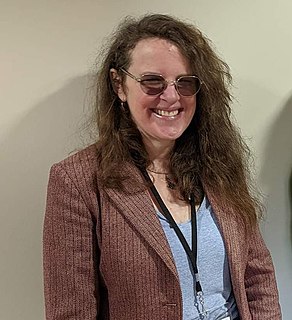A Quote by Greg Rucka
There are a lot of people in the medium who came and got into the industry and work in the industry, and these are people who were raised on comics and loved comics. Comics are their religion. To such an extent, that they don't know anything else.
Related Quotes
I quit comics because I got completely sick of it. I was drawing comics all the time and didn't have the time or energy to do anything else. That got to me in the end. I never made enough money from comics to be able to take a break and do something else. Now I just can't stand comics. . . . I wish my work would be recognized by a larger crowd of people as more art than be stuck with the cartoonist label for the rest of my life.
There are a lot of good comics, no doubt, but as far as the quality of the comics goes, I think what you have is a bunch of situational comics - there are black comics that work only black crowds, gay comics that do only gay crowds, and southern comics that only work down South, and so on with Asian, Latino, Indian, midgets, etc. The previous generation's comics were better because they had to make everybody laugh.
The lovely thing about writing comics for so many years is that comics is a medium that is mistaken for a genre. It's not that there are not genres within comics, but because comics tend to be regarded as a genre in itself, content becomes secondary; as long as I was doing a comic, people would pick it up.
Self-publishing in comics is core to the whole artform. There is no scarlet letter in comics as there still is, to some degree, in prose. As no publisher for a long time would publish serious work in comics, the only way a lot of it came out was because of self-publishing. Many of the greatest works of the medium are self-published.
I know I'm a grumpy old man, but I'm always more delighted by readers talking about the actual comics than people talking about how eager they are to have their favorite comics be "elevated" into another medium. Adaptations are great, but for me, comics have always been the destination, not a stepping-stone to get somewhere else.
When I was a kid, back in the '40s, I was a voracious comic book reader. And at that time, there was a lot of patriotism in the comics. They were called things like 'All-American Comics' or 'Star-Spangled Comics' or things like that. I decided to do a logo that was a parody of those comics, with 'American' as the first word.
I was going to be a storybook illustrator or an editorial illustrator. I ended up in a comics class by mistake because all the others were full, so I was like 'I'll stay for one class, and then I'll go take something else, because I don't care about comics.' I got pulled in really fast; I discovered I had a voice in comics that I didn't know I had.





































